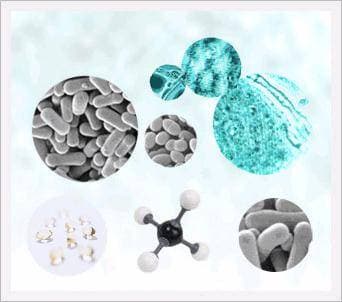Products for Aquaculture and Livestock
Negotiable Min Order Quantity Unit
- Required Quantity
-
- Place of Origin
- Payment Terms
- Negotiable
- Production method
- Negotiable
- Shipping / Lead Time
- Negotiable / Negotiable
- Keyword
- Category
- Other Foods

Mediogen Co., Ltd.
- Country / Year Established
-
 South Korea
/
South Korea
/
- Business type
- Others
- Verified Certificate
-
17


| Product name | Products for Aquaculture and Livestock | Certification | - |
|---|---|---|---|
| Category | Other Foods | Ingredients | - |
| Keyword | - | Unit Size | - |
| Brand name | - | Unit Weigh | - |
| origin | Stock | - | |
| Supply type | - | HS code | - |
Product Information
Probiotics for Aquaculture
Why do we need Probiotics for Aquaculture?

Probiotics for human and livestock are optimized to live in 37°C. These probiotics are inadequate to live in marine temperature(15~25°C) and salt concentration. To survive and proliferate in brine, probiotic bacteria should overcome saline condition and low temperature. Kimchi, Korean traditional vegetable food, satisfies these condition. So we separated probiotic bacteria from Kimchi.
Antibacterial activity and growth promotion in a aquacultured fish by probiotics
For the development of probiotics in aquaculture of marine organisms, three strains having psychrophilic and salt tolerant characteristics were isolated from Kimchi. Among the isolated strains, MG19, MG89 and MG208 were identified as Lactobacillus brevis, Enterococcus faecium and Lactobacillus plantarum, respectively.
The neutralized culture broth of isolated strains were tested in order to evaluate the antibacterial activity, which showed high antibacterial activity against Edwardsiella tarda, Vibrio cholerae and Pseudomonas fluorescens. In mixed culture of pathogen and isolated strain, pathogens were significantly inhibited after 2 days of cultivation but the isolated strains showed normal growth.
When the E. tarda was cultured with three isolated strains, its growth was completely inhibited after 24 hours of cultivation. The effect of isolated three strains as probiotics was investigated based on the changes in body weight of aquacultured flounder. After 50 days feeding trial, it was found that the mean body weight gain of the tested group fed by freeze dried isolated cells was significantly greater than that of the cintrol group. These results suggest that the isolated strains can play an important role as probiotics in aquaculture.
Antibacterial activity of probiotics cultivated in optimal production medium
Loaded sample((50㎕) |
Antibacterial activity against |
||
Edwardsiella tarda |
Vibrio cholerae |
Pseudomonas fluorescens |
|
1% Amoxycillin Neutralized Cultured broth |
19 |
13 |
15 |
MG19 |
15 |
12 |
15 |
MG89 |
16 |
12 |
15 |
MG208 |
18 |
11 |
17 |

Fig.1. Growth inhibition of Edwardsiella tarda by three probiotics(MG19, MG89, MG208) in TSB broth contained 2.5% NaCl
- ● Viable cells of E.tarda in only E.tarda culture,
- ■ Viable cells of probiotics in mixed culture,
- ▲ Viable cells of E.tarda in mixed culture

Fig. 2. Growth inhibition of Vibrio cholerae by three probiotics(MG19, MG89, MG208) in LB broth contained 2.5% NaCl
- ● Viable cells of V.cholerae in only V.cholerae culture,
- ■ Viable cells of probiotics in mixed culture,
- ▲ Viable cells of V.cholerae in mixed culture

Fig. 3. Growth inhibition of Pseudomonas fluorescens by three probiotics(MG89, MG208, MG311) in LB broth
- ● Viable cells of P.fluorescens in only P.fluorescens culture,
- ■ Viable cells of probiotics in mixed culture,
- ▲ Viable cells of P.fluorescens in mixed culture
Effect of oral administration of probiotics on body weight gain of flounder after 50 days in feeding trials
Determination |
Average weight(g) |
Body weight gain |
Gained weight ratio(%) |
Gained weight ratio to control(%) |
|
1st day |
50th days |
||||
Feeding of probiotics* |
316.4 |
401.8 |
85.4 |
27 |
50 |
control |
318.4 |
375.0 |
56.6 |
17.8 |
- |
*; mixture of MG19, MG89 and MG208
Probiotics for Aquaculture
Microorganism |
Characteristics |
Competitiveness |
Lactobacillus brevis Lactobacillus plantarum Lactobacillus casei Enterococcus faecium |
|
|
Probiotics for domestic animal (Direct-fed Microbials)
An effective probiotic dietary supplement should
- Exert a beneficial effect on the host
- Be nonpathogenic and nontoxic
- Contain a large number of viable cells
- Be capable of surviving and metabolizing in the gut
- Remain viable during storage and use
- Be antagonistic to pathogen
Our custom probiotic formulations meet all these requirements. Growth characteristics of probiotics appear to be species specific and depend on the amount ingested and duration administered. The more the bacterial imbalance in the digestive system, the higher the dosage will be required for positive and measurable results.
Effects of Probiotics in Livestocks
- resistance to infectious disease
- improvement of digestion
- increased growth rate
- better absorption of nutrients
- provision of essential nutrients
- augmentation of milk yield
- improvement of milk quality
- increase of egg production
- reduction of bad ordor in feces
Healthier animals shall grow faster and be more productive than weak livestock. Apparently, probiotics are not an direct alternative to antibiotic treatment of acute disease. But probiotics can be used normal times to prevent infectious disease.
Probiotics for Livestock
Microorganism |
Characteristics |
Competitiveness |
Lactobacillus acidophilus |
|
|
Bacillus coagulans |
|
|
Products for addition to high temperature treatment feed
Why do we need Probiotics for high temperature treatment feed?

| Click on small images to see them in enlarged detail |
Probiotics for addition to high temperature treatment feed
Microorganism |
Characteristics |
Competitiveness |
Bacillus polyfermenticus |
|
|
Bacillus coagulans |
|
|
Bacillus subtilis |
|
B2B Trade
| Price (FOB) | Negotiable | transportation | - |
|---|---|---|---|
| MOQ | Negotiable | Leadtime | Negotiable |
| Payment Options | Negotiable | Shipping time | Negotiable |
- President
- Nam-Soo, Paek
- Address
- #1504, Masterstower, 553, Mapo-gu, Seoul, Korea
- Product Category
- Herbal Medicine,Other Animal Feeds
- No. of Total Employees
- 1-50
- Company introduction
-
MEDIOGEN Co., Ltd. was established in 2000.
MEDIOGEN Co., Ltd. is a bioventure corporation based on the microbial biotechnology, and life science. We have focused on the research, development and production of the highest quality probiotics for commercial applications such as health food, dairy products and herb fermentation. Particularly MEDIOGEN produces characteristic probiotics for health food, aquaculture and domestic animal. In addition, we research and develop multifunctional food materials, functional feedstuffs. So our products have high survival rate in long storage, acid tolerance and bile acid resistance.2000. 06. MEDIOGEN Corporation was founded
2000. 07. Manufacturing of initial products
2000. 12. Registration of Food manufacture and marketing
2001. 02. Acknowledged as an excellent venture enterprise by the Small and Medium Business Administration
2001. 05. Moving in paju at GyeonggiDo
2001. 11. Registration of Feed additives manufacture
2005. 06. Acknowledged as an excellent technique enterprise by the KIBO
2006. 07. Acknowledged as an INNOBIZ enterprise by the Small and Medium Business Administration
2007. 05. Moving in Jecheon at Chungcheongbuk-Do
2007. 11. Certification of ISO 9001:2000 by MSAProbiotics products of MEDIOGEN
Strain
Lactobacillas brevis MG19
Lactobacillas plantarum MG208
Lactobacillas acidophilus MG501
Lactobacillas rhamnosus MG315
Lactobacillas casei MG311
Lactobacillas reuteri MG505
Lactobacillas bulgaricus MG515
Lactobacillas fermentum MG590
Lactococcus lactis MG530 Enterococcus faecium MG89Streptococcus thermophilus MG510
Bifidobacterium longum MG723
Bifidobacterium infantis MG727
Bifidobacterium breve MG729
Bifidobacterium bifidum MG720
Bacillus coagulans MG520
Bacillus subtilis MG401
Bacillus natto MG410
Bacillus polyfermenticus MG440
- Main Product
Related Products
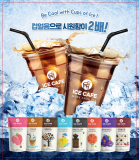
ICE, Cup Ice, ICE Drink
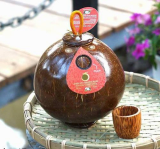
PREMIUM COCONUT WINE
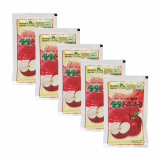
Singsing natural apple juice Korean apple 100% 1box 50piece
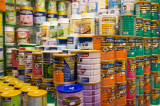
Nestle Nido Instant Full Cream Milk Powder
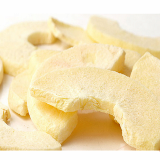
Troo Freeze Dried Apple


































